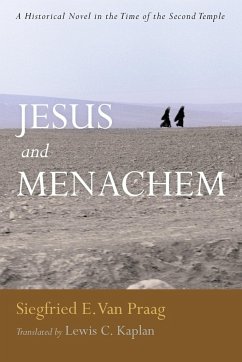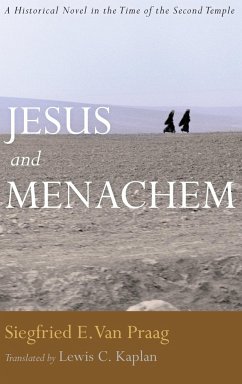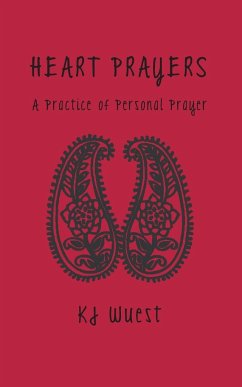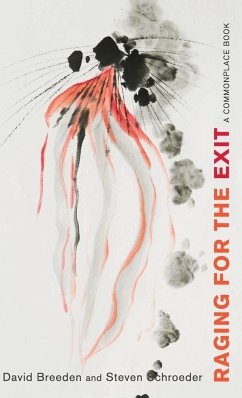Jesus and Menachem places Jesus (Jeshua) in the historical context of the Roman occupation of Judea Second Temple period The fictional character of Menachem is introduced to deepen and clarify the relationship between Jesus, the Pharisees, the Sadducees, the Zealots, and Rome. In a1949 review in Commentary magazine, this book is compared favorably to The Nazarene by Sholem Asch. Menachem fights the Romans at the side of the Zealot Ben-Necher, killing them as he murmurs ""thou shalt not kill."" He loves Jesus, but does not believe in him as Jesus would have him believe. He is not a Pharisee, and yet cannot be against the Pharisees. When Pontius Pilate offers the Jews a choice between Barabbas the ""robber"" and Jesus the ""negator of God,"" he refuses to choose, for Barabbas is not a robber but a Zealot, and Jesus not a negator of God but perhaps a Messiah. Van Praag has painted Palestine with a simplicity, containing nothing unnecessary or barbarous, with a palpable mellowness which can be touched, inhaled, heard on every page.
Bitte wählen Sie Ihr Anliegen aus.
Rechnungen
Retourenschein anfordern
Bestellstatus
Storno








